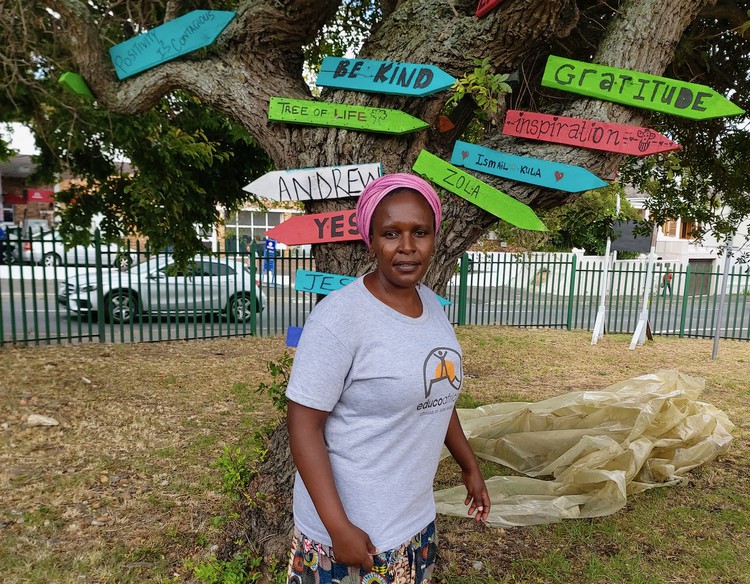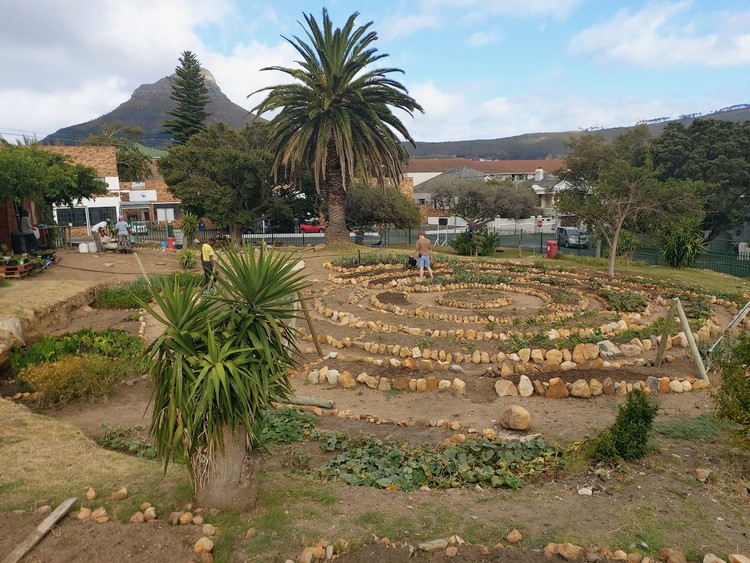Cape Town garden changes lives for homeless people
“You have to have an ID, otherwise it is as if you don’t exist”
Archiebold Zolile Ndindwa moved to Van Riebeeck Park near Cape Town’s city centre after he could no longer afford to pay his rent in Langa.
For many homeless people finding work is hard, even harder if they are without documents. But with help from Streetscapes, Ndindwa recently obtained his ID and can now receive a disability grant. (He was in an accident in 1987 that left him with a back injury.)
The Streetscapes garden in Vredehoek, where Ndindwa has been working since last year, assists homeless people through simple interventions, such as helping them get their IDs.
Many homeless people, who were living next to a stream in Van Riebeeck Park, have been integrated into the Streetscapes gardening program, a collaboration between Streetscapes, Vredehoek-based DPV Watch, the City of Cape Town, and Friends of Rugley Road Park – a residents’ association.
Streetscapes sells its garden produce to walk-in customers and also has arrangements with four restaurants in the area. It sells potted succulents and a variety of vegetables, such as butternut, spinach, and tomatoes.
Babalwa Bangani, supervisor at the Streetscapes garden in Vredehoek, said: “I found out that all those people [living in the park] have two things in common: they wanted jobs and they needed shelter. I approached them and when a person showed an interest and wanted to work, then I would give them an opportunity.”
Bangani said that if they stuck to the rules for the two months probation, Streetscapes would then send them to a social worker at Khulisa Social Solutions in order for them to apply for a job in the garden.
Jesse Laitinen, Streetscapes project director, said that the two-month period is a “test period to see if they are committed to work-based rehabilitation. And if they are, they get signed up in the programme.”
Streetscapes is part of Khulisa Social Solutions, a non-profit organisation that offers social services to the vulnerable in society. Bangani explained that the Streetscapes program also helps their volunteers and employees with obtaining IDs, creating and uploading CVs, using the internet, and showing where they can go for short courses.
Laitinen said: “We started the initiative because they were really vulnerable people living in a very wealthy area.”
Laitinen said that Streetscapes has helped over 300 homeless people since 2015. There are currently 70 people in the programme for this year.
Jerome Daniels, who works at the garden, said: “It all starts with having an ID. It’s first an ID and then it is a roof over your head … When you’re on the street, everything gets lost. You also get lost. Your life gets lost.”
“You have to have an ID, otherwise it is as if you don’t exist. It opens doors for you; you can do nothing without an ID,” said Fiona Swartz, who lives in Van Riebeeck Park.
She said she understands that residents complain about homeless people, “because they think that people that live on the street are usually criminals, that they are dirty and that they have no education”.
“I would have probably had the same idea in my mind if the roles were reversed,” she said.
Swartz said however that some Vredehoek residents brought them food.
The Streetscapes garden in Vredehoek offers employment and social interventions for homeless people.
Support independent journalism
Donate using Payfast

Don't miss out on the latest news
We respect your privacy, and promise we won't spam you.
Next: UNISA students, workers, protest in Pietermaritzburg
Previous: Sick Durban river spoils popular recreational lagoon
© 2020 GroundUp.
This article is licensed under a Creative Commons Attribution-NoDerivatives 4.0 International License.
You may republish this article, so long as you credit the authors and GroundUp, and do not change the text. Please include a link back to the original article.


